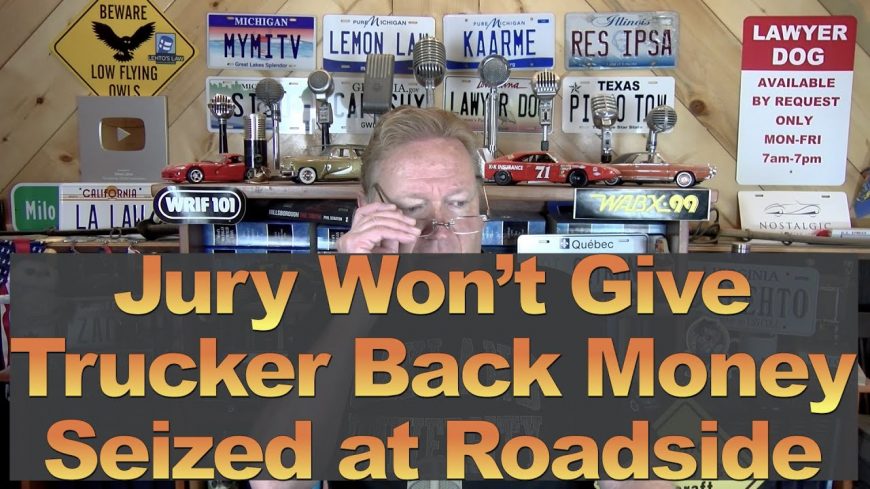Money Stolen by Police? Jury Won’t Give Trucker Back $40k Seized at Roadside

Civil asset forfeiture might be one of the most frustrating situations to sort out in a courtroom. For those who aren’t in the know, basically, the idea is that police possess the ability to seize just about any property or money that they want should they so much as suspect that it might be linked to a crime. In such a scenario, the individual in question doesn’t even need to be convicted of a crime for civil asset forfeiture to take place.
The entire concept leaves the door wide open for corruption and abuse of power. It’s actually kind of mind blowing that lawmakers found a way for this sort of power to fit into the framework of the constitution as we know it but I digress.
This time, we check in with YouTube lawyer, Steve Lehto, who breaks down a rollercoaster ride of a case as it applies to civil asset forfeiture.
Long story short, a trucker was traveling a long distance in order to go purchase another truck. While behind the wheel of a rental car, the individual was pulled over for following a box truck too closely. He wasn’t issued any charges, tickets, or even a warning but for one reason or another, police still wanted to search the car and the driver granted them permission.
When they found just over $40,000 vacuum sealed in plastic bags in the trunk, the money was seized and held hostage for over two years before things ended up in court. Lehto claims that in most cases there’s a settlement made and the money is generally given back. In this particular case, though, with the leading argument being nervous behavior and vacuum sealed bags, a jury denied the truck driver the ability to retain his property.
Perhaps the worst part of the whole ordeal is that “innocent until proven guilty” seems to have flown out the window when civil asset forfeiture is put in play as individuals who have had their property stripped need to sue police and prove that the money was obtained innocently in order to get it back.
Below, Lehto breaks down the case that is sure to make some peoples’ blood boil.

